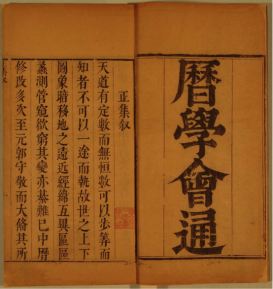In the late Ming dynasty, the Jesuit missionaries first introduced European science into China, and the scientific exchanges between the Jesuits and Chinese literati commenced. This project will concentrate on the reactions of Chinese scholars impacted by European science, especially Xue Fengzuo 薛鳳祚 (1600–1680), the most important astronomer in the early Qing Dynasty.
Xue Fengzuo created a special system of knowledge, integrating both Chinese and Western knowledge. In the title of his most ambitious work, Lixue huitong (曆學會通), two significant notions were used: “calendrical learning” (曆學) and “integrated study” (會通). His understanding of these two notions turns out to be unique. In his mind, “calendrical learning” includes not only calendrical astronomy, but also astrology and some pragmatic arts. The three parts are related to each other and make up an organized whole, which gives him a reliable way to realize the highest Confucian ideal. Accordingly, his “integrated study” also penetrated all of the three parts of “calendrical learning,” in which he adopted knowledge from any available sources, no matter whether they were Chinese or Western, ancient or recent. Xue Fengzuo's ideology was strongly connected to the Image-Number School (象數學), the Neo-Confucian School of Mind (心學), and Western Learning (西學). His way of integration was also a response to the dissemination of European astronomy and astrology.

